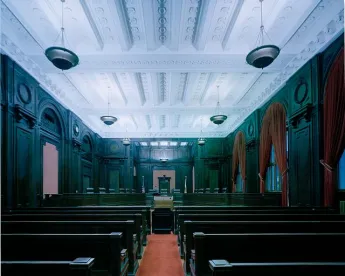A recent decision by the United States Patent and Trademark Office, Trademark Trial and Appeal Board ("TTAB"), in an opposition proceeding captioned Luster Products, Inc. v. John M. Van Zandt, reminds us of the age old Oscar Wilde adage warning us of dangers in making assumptions. In a precedential decision, the TTAB shot down the applicant’s motion to "extend discovery," filed over a month following the close of the discovery period. The crux of applicant’s argument, as cited by the TTAB, was that the applicant “rightfully assumed” the opposer had lost interest in the case, which it argued justified its strategic decision not to serve discovery requests. Much to the applicant's chagrin, the opposer craftily served initial disclosures, document demands and interrogatories on the final day of the discovery period, which by TTAB rules is timely. Left without any means to test the opposer's case, the applicant sought an extension of the already closed discovery period.
Treating the motion as a motion to reopen discovery, the TTAB found that the applicant had not met the required standard of excusable neglect. The TTAB rejected the applicant’s argument that written discovery would be a waste of time if the opposer did not intend to prosecute, and that it would not have been able to draft discovery requests without the opposer's initial disclosures as a guide. Maybe the TTAB's decision had something to do with the fact that the applicant rejected the opposer’s request to suspend the proceeding for settlement shortly before the close of discovery. However, it seems more likely that the TTAB is simply not going to allow parties to consciously disregard the discovery period and then seek to prolong the opposition by reopening discovery. As the TTAB noted, "To the extent that applicant made a calculated strategic decision not to take discovery in the hope that opposer had lost interest in the proceeding, the events in this case illustrate the danger of such a decision."
Learning from the applicant’s foible, it is important that parties to opposition proceedings and traditional litigations remember it is a dangerous business assuming your adversary has abandoned the case, after all, that’s for the TTAB or court to decide.




 />i
/>i

